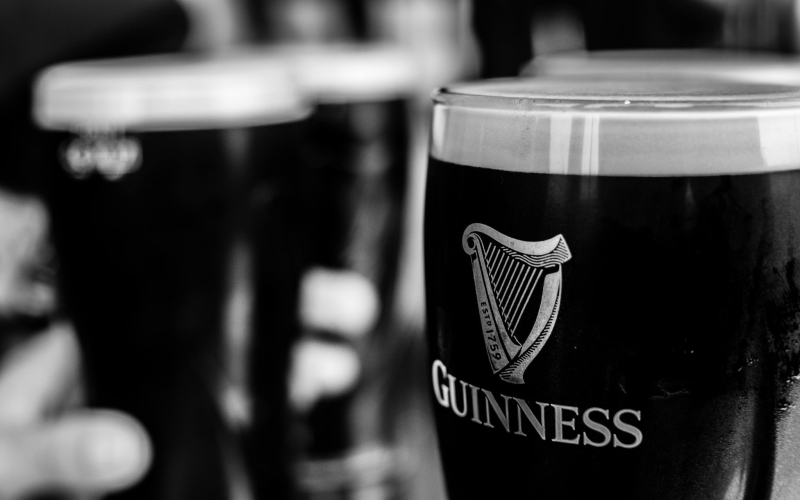Do you enjoy Guinness, or are you new to it? Guinness is more than its rich colour and creamy texture, whether you’re an expert or a longtime drinker. Guinness is among the most prosperous beer brands. Several types of this beer are available now. Delicious with substantial meals, it’s a frequent element in cuisine and drink recipes.
Guinness is a darker beer with origins over 250 years ago, and it represents Ireland’s rich culture, delicious workmanship, and enduring appeal.
From the first beer made in Dublin in 1759 to the latest formulations, understanding this magnificent Irish beverage might explain its global popularity.
Examining Guinness’s Flavours
Ever wonder why everyone adores and finds the renowned Guinness beer so special? Beer lovers keep coming back for more because of its unique, strong taste.
The intriguing thing is that a combination of what seems to be simple ingredients— roasted and malted barley, water, hops, and yeast—is used to create this deep flavour. The roasted barley adds that distinctive black colour and the perfect amount of toasted sweetness to the beer, along with a faint flavour of dark chocolate, which is when the magic starts.
The yeast gives it a silky feel, while the hops balance the malty foundation with their bitterness. Beer aficionados choose Guinness because its distinct aromas and textures make every sip unforgettable.
Thus, next time you drink this amazing beer, appreciate its preparation and enjoy its distinct flavours.
How Can a Homebrewer Make Their Own Guinness?
To make your own Guinness, fuggle hops are added at the 60-minute point of a 90-minute boil. To get the proper original gravity in your brew, you must let the yeast ferment it once the boiling process is over.
Which Hops Are Required for a Guinness Clone?
Fuggle hops are necessary to create a Guinness clone. They are added at the 60-minute point in the boiling process to give the beer its bitterness.
What Methods Can Be Employed to Get Guinness’s Distinctive Sourness?
There are several ways to achieve Guinness’s distinct sourness. One method is adding a few drops of lactic acid after fermentation. Another is to add acidulated malt to your grain bill.
An even more adventurous approach is to let some of the wort to air for a few days to organically sour it.
What Should a Homebrewed Guinness’s Final Gravity Be?
Guinness clones brewed at home should have a final gravity of roughly 1.010. This figure indicates that fermentation is almost complete, which affects the beer’s alcohol and sweetness.
Guinness has become a worldwide brand since its humble beginnings decades ago. Its unique flavour from its components is one reason it’s a staple in many cultures. These tips and techniques will enable you to enjoy Guinness the way you never imagined before.
Guinness has something for everyone, whether you want to try it for the first time or find novel ways to consume it.

